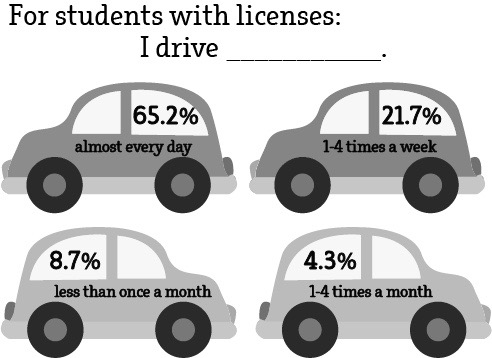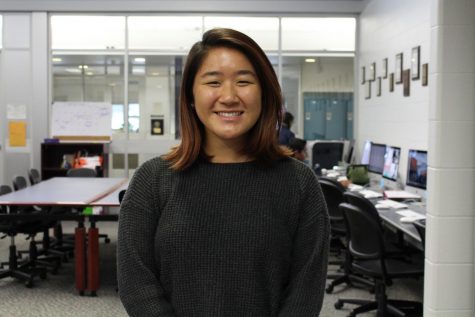Students driven to either get behind the wheel or not

Blot graphic by Ebbie Shim.
December 18, 2017
Freedom, flexibility, fear. All of which come with the ability to drive.
A handful of upperclassmen at CHS drive to and from school for a variety of reasons, ranging from convenience to independence. Nonetheless, the majority of the senior class chooses not to drive, occupying less parking spaces than the faculty.
Senior Robert Denny of Keyport is one of the upperclassmen who prefers taking the bus over driving.
“I have not even started to learn how to drive because I have a fear of driving. I’ve seen accidents and I really don’t wanna be a part of that,” Denny said.
Many students are in the same frame of mind, reluctant to get behind the wheel because of what could go wrong.
“I think that the only pressure there would be [to drive to school] is underclassmen wanting to get rides home,” Denny said.
Despite the dangers and unwarranted requests for rides, there are upsides to the privilege of teenage driving.
Since athletes must return to their home high schools for sports, it is common for CHS students to arrive late to practices and games because of the bus. Senior Anika Pepsin of Middletown is one of the athletes who benefit from driving.
“Driving gets me to field hockey around 15 minutes earlier [than my bus does], which is much better,” Pepsin said.
Driving cuts down time spent in transportation, getting athletes to their designated locations more efficiently than buses. Students’ cars have proved to be more efficient than taking the bus, swapping out time for travel with valuable playing time.
“It’s good to not have to rely on somebody else to get somewhere,” Pepsin said.
Another incentive for students to drive is Senior Mentorship. This class is an opportunity for all seniors to partake in a work experience outside of the classroom for most weekdays.
Senior Emily Brzozowski of Brielle believes driving to her mentorship site is her only option.
“For me, at least, my parents both work or are busy during the day, so no one would be able to drive me,” Brzozowski said. “We can’t really carpool because two people can’t go to the same place, and [there are] no businesses or other modes of transportation within walking distance.”
While for many it is inconvenient to have a parent drive his or her child four days of the week, Pepsin says it is possible.
“I think that for a lot of kids [being able to drive] is necessary because their parents work, but I know there are kids that have parents who would be able to come and pick them up to drive them to wherever they need to be,” Pepsin said.
Whether it be because of dignity or danger, students have their own reasons for wanting or not wanting to drive.




